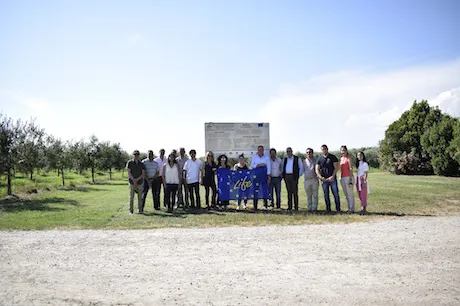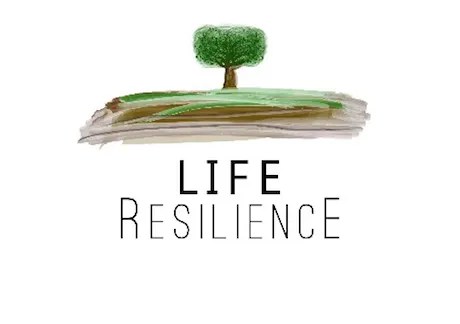The partners of the European project Life Resilience, which was co-funded by the Life program of the European Union, met on June 18 at the headquarters of Coldiretti Pisa, in Pisa (Italy), to collect all the progress and results recorded in the last three months and determine the next steps to follow.
This ambitious project has the participation of three countries (Spain, Italy, and Portugal), which means these monitoring committees are key so that all of the project phases meet their deadlines and so that they implement the most effective measures to improve productivity and sustainability in the systems implemented in three demonstration farms; i.e. in El Valenciano in Carmona (Spain), Charquerao in Alandroal (Portugal), and La Traversagna in Pisa (Italy).
The nine participating partners involved in the research, control and proposal of Xylella fastidiosa prevention measures have made progress in the last three months of the project.

So far, the inventory of soils has been carried out with a work procedure called MAP2SOIL, making a survey of the three farms with geo-sensors and using drones to map spatial variabilities that allow obtaining detailed information of each plot and analyzing the main edaphic and microbiological parameters of soils and crops.
Thanks to the use of precision agriculture (sensors, thermal and infrared cameras, drones, and satellites), researchers can evaluate the response of the crops to the different strategies of the project, analyze the photosynthetic activity of the crop, evaluate if it presents some kind of stress, and determine early onset of the disease in crops.
The Portuguese company Nutriprado has evaluated the presence of the potential vector insect of Xylella fastidiosa in the three farms, taking into account the climatology and types of soil. They have also selected different plant species that will be used in the plant coverings that will be installed in September 2019 to increase the auxiliary fauna present next to the insect vector to see how they behave as a whole with different plant species. Right now, all efforts are being made to examine which plants attract the insect vector the most and which repel it or are attractive to auxiliary insects that facilitate biological control.
Currently, a controlled deficit irrigation strategy is being applied in Spain and Portugal and, after the design of the demonstrative tests developed by Ideagro, researchers have selected different microorganisms that will be incorporated into the soil to improve the availability of nutrients, increase resistance to stress (biostimulation) and increase the resilience of plants.

They have already begun to apply biostimulants and biofertilizers in the farms of Spain and Portugal. These elements help to solubilize nutrients that are present in the soil but that plants are unable to assimilate, such as phosphorus and potassium. This means they are using natural fertilizers that do not leave residues in the soil and provide benefits to the plant by producing bio-stimulating hormones and inducing resistance to pests and diseases.
Researchers in Italy are heading an investigation on the methods to contrast the main vector of Xylella fastidiosa present in the olive groves of the Puglia region, Philaenus spumarius.
Preliminary data obtained through the samplings carried out in Tuscan farms have shown a great variability in the presence of juvenile forms, even among the plantations located a short distance away from each other, and have led researchers to conclude that some products allowed in organic agriculture, such as fungus Beauveria bassiana, derivatives of microbial fermentation, potassium soaps, sulfur, and pyrethrins, are more effective in reducing the population of larvae in olive groves.
Researchers from the Life Resilience project consider that the way forward is prevention, carrying out good agronomic practices, and, above all, constant monitoring to limit the spread of Xylella fastidiosa and other diseases.
About Life Resilience
"Prevention of X. fastidiosa in intensive olive & almond plantations applying productive green farming practices" is a project that aims to seek sustainable and productive practices for the prevention of Xylella fastidiosa in intensive and high-density olive and almond groves. The project is led by the Galpagro company and includes the participation of the University of Cordoba, Agrifood Comunicacion, Agrodrone, ASAJA Nacional, Nutriprado, SAHC-Sociedad Agrícola de Herdade do Charqueirao, SA; Gruppo Salov and the Istituto per la Valorizzazione del Legno e delle Specie Arboree (IVALSA), belonging to Italy's Consiglio Nazionale Delle Ricerche.
More information about Life Resilience at www.liferesilience.eu
More information about the Life program: http://ec.europa.eu/environment/life/

